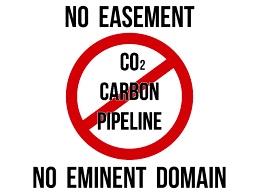 The South Dakota Public Utilities Commission voted 3-0 to deny a permit to Navigator Heartland Greenway, LLC to build pipelines that will convey carbon dioxide from ethanol plants in the Midwest across the state to subterranean disposal facilities in North Dakota.
The South Dakota Public Utilities Commission voted 3-0 to deny a permit to Navigator Heartland Greenway, LLC to build pipelines that will convey carbon dioxide from ethanol plants in the Midwest across the state to subterranean disposal facilities in North Dakota.
According to the statutes of South Dakota, standards for a project include compliance with existing laws, absence of any threat of injury to people and the environment, minimal or no social-economic impact on landowners and not unduly impacting future development by the public sector.
Although the concept of conveying carbon dioxide released by ethanol plants to claimed safe disposal id desirable, questions concerning safety dominated the application process.
The South Dakota Public Utilities Commission claims that Navigator Heartland Greenway, LLC was less than cooperative in responding to specific questions relating to the project raising concerns over future compliance with regulations.
It is noteworthy that the ethanol industry with a capacity of close to one million barrels per day from 192 plants has only recently established the need for a network of underground pipelines. How does the industry dispose of carbon dioxide evolved during fermentation of corn to produce ethanol. If a high proportion is released to the atmosphere, the ethanol industry cannot claim that they are environmentally friendly, irrespective of the composition of tail pipe emissions of vehicles since a bushel of corn produces equal quantities of ethanol, DDGS and carbon dioxide. Disposal is an important component of the biofuel program since it is a major producer of a greenhouse gas.